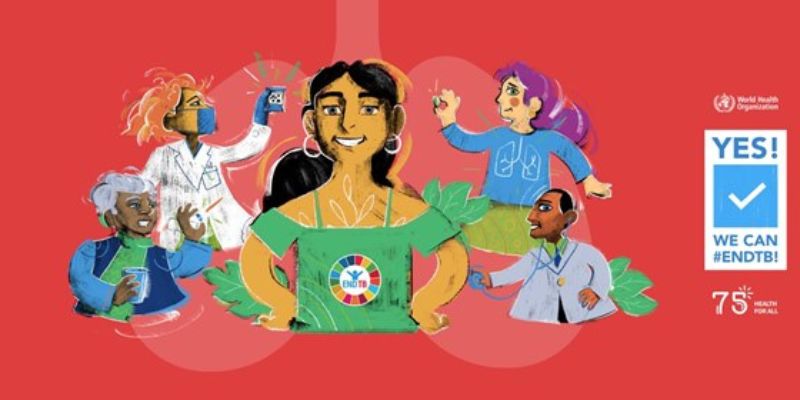Fighting drug resistant tuberculosis in Pakistan

On 24 March 1882, Dr Robert Koch discovered the bacterium that causes tuberculosis. Marking World TB Day (24 March), we explore the work University of Leeds Professor John Walley and partners are doing to tackle multidrug-resistant TB in Pakistan.
The global fight against tuberculosis
TB is a preventable and curable disease, yet it remains one of the leading causes of infectious death globally, according to the WHO 2022 Global TB report. This disease is caused by bacteria (mycobacterium tuberculosis) that mainly affects the lungs.
TB is found worldwide, however, eight countries - India, Indonesia, China, the Philippines, Pakistan, Nigeria, Bangladesh and the Democratic Republic of the Congo - accounted for more than two-thirds of global TB cases in 2020.
Treatment for TB consists of a four or six month course of four antimicrobial drugs, however, drug resistant strains of TB are becoming more common due to the misuse or mismanagement of TB drugs. Multidrug-resistant TB (MDR-TB) is caused by bacteria that does not respond to two of the most potent drugs used in TB treatment, making treatment significantly longer and more expensive.
Furthermore, the COVID-19 pandemic significantly impacted health services, with negative impacts on the diagnosis, treatment and overall burden of TB worldwide.
Based on the WHO’s Global Tuberculosis Report in 2022 the impacts included:
- the number of people with undiagnosed and untreated TB has grown due to the decrease in newly diagnosed individuals in 2020 and 2021,
- the number of deaths from TB increased between 2019–2021 with over 1.6 million deaths,
- there was a decrease in people provided with treatments for drug-resistant or multi-drug resistant forms of TB from 2019–2020.
Improving health outcomes and TB care in Pakistan
Professor John Walley and Amir Khan from the Association for Social Development (ASD) have spent the last 20 years conducting research for the treatment of TB in Pakistan. Prior to their work, there were no health programmes for TB.
Walley, Khan and their Pakistan Ministry of Health partners designed a programme to run within existing health centres in the country to provide TB care close to patients’ homes, creating less risk of patients lost to treatment due to inaccessibility. This work has been used to diagnose and treat more than 300,000 patients annually across Pakistan and directly led to changes in the WHO StopTB strategy’s directly observed treatment, short course policy.
Building off of the success of their research and policy on drug-sensitive TB, they are currently working to tackle drug-resistant TB in the country. Care for drug-resistant TB was only accessible in a few centres within Pakistan and since treatment for drug-resistant TB is time-intensive and more expensive than treating drug-sensitive TB, outcomes were poor.
Collaborating with Pakistan’s Ministry of Health, the group developed a community-based drug-resistant TB case management guide, training and recording system for doctors treating patients in community-based centres.

An embedded approach to research and policy
Walley and partners have developed an embedded development and research approach to find ways to effectively deliver essential care and prevention services, and ensure that the research being conducted influences policy and practice on a large scale.
This approach integrates operational research and development within national programmes or ministries of health. Its design helps develop usable tools and training materials while ensuring the research is relevant for policy and addresses national priorities.
This embedded research and service development approach is not only being used to address TB, but also appropriate antibiotic use in other respiratory infections, HIV anti-retroviral treatment, family planning and child health services.
Impact and next steps
Walley, Khan and their colleagues have had enormous success in their work with the tools developed for the diagnosis and treatment of MDR-TB are used countrywide.
ASD provided technical support for 12 hospital MDR-TB sites, and other hospitals around Pakistan are utilising the national guidelines and tools developed.
These tools include the development of national TB clinical guidelines, training modules, and education packages for both drug-sensitive and multidrug resistant TB that have since been adopted by the Pakistan Ministry of Health.
Their research has significantly improved the quality of life for people with TB in Pakistan and this ground-breaking work has since been adapted, by Professor Wei and the TB programme in China, and the current trial of WeChat video treatment support in Tibet.
Article image: A Mycobacterium tuberculosis drug susceptibility test. Picture free to use via Unsplash.com/CDC